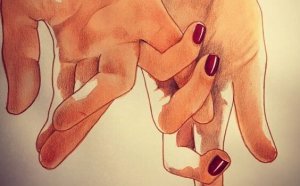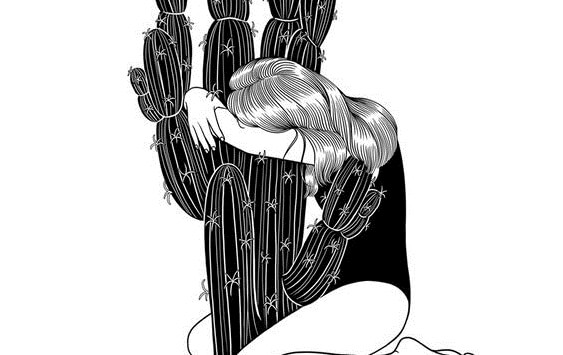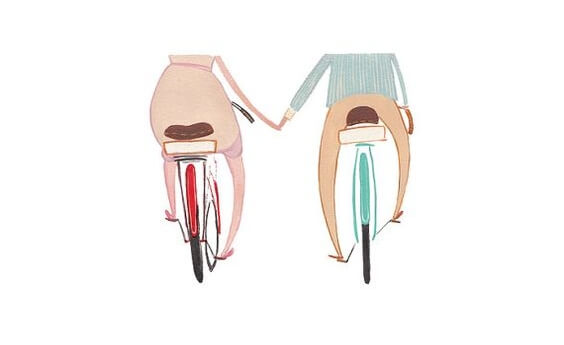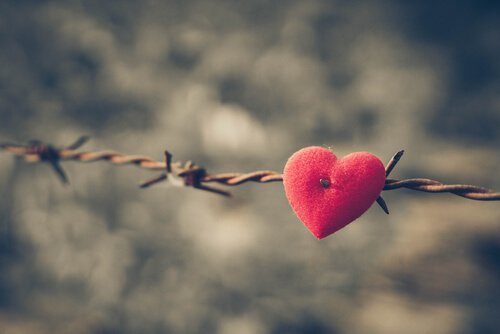Love Doesn't Need a Magnifying Glass, It Needs a Mirror


Written and verified by the psychologist Valeria Sabater
When some people are in love, they almost act like a sniper. They hold a magnifying glass to their partner to find defects, errors, and supposed weak points. They undermine, and eventually destroy, the relationship.
It’s the paradigm of the coward. A person who doesn’t understand that love needs mirrors — not magnifying glasses.
When it comes to the tricky business of relationships, none of us know it all. Most of us have run off more than one cliff leaving a wreck of dreams and hopes behind us.
We’ve been shipwrecked in the ocean of impossible love and cowardly passion, whether we were afraid, or just indecisive.
“Behavior is a mirror in which everyone displays his own image.”
-Goethe-
Now, there is one type of relationship that usually wreaks more havoc than any other. It’s the one where one or both members act as “identity destroyers.”
They focus their attention on everything they don’t like, all the things that bother them in their partner. Why? To ridicule and control them.
They do it because that’s how they take the reins and compensate for their wounded self-esteem.
Almost without realizing it, we get trapped in a hamster wheel, our own inertia trapping us in a dangerous dynamic of unhappiness.
A dynamic in which one person carries the magnifying glass but is incapable of looking themselves in the mirror to see their own holes inside, and immaturity.

The complexity of love: blaming the other person
Howard Markman is a professor of psychology at the University of Denver and one of the best-known researchers on relationships. His widely published works illustrate with precision and originality the many problems that occur within the framework of the common and the everyday.
One of Dr. Markman’s most interesting ideas is that most people who go to couple’s therapy are convinced that all the problems and unhappiness is because of the other person.
They harbor the impossible hope that the therapist will provide “healing” or will “cure” the wrong behavior of the partner. If it were up to them — and this is what they often expect from the professional — their partner will be taken by the ear and punished for their bad behavior.
Well, behind most couples’ problems, there’s usually no mental health problem, but rather a problem of relational dynamics. A dynamic that the two have built and which defines how they relate to each other.
For Dr. Markman, complaints that wind up in his consulting room are often associated with certain deficiencies related to emotional education and psychological skills. Thus, he proposes that we should teach “psycho-education” in schools from an early age.

The aim of psycho-education would be to provide us with strategies, tools, and skills so we can help ourselves. It would teach us to look at ourselves in the mirror. To identify our own fears, insecurities, and, last but not least, to tear down society’s rigid roles and gender norms.
When it comes to love, some people get carried away by these roles and norms. They may have inherited them from their own families.
Perhaps they learned that it’s “better to keep quiet and put up with it“, that “if he doesn’t do this, he doesn’t love me, so I should get angry.”
In essence, the idea is to establish a basis of self-knowledge so we can take care of ourselves and thus bring the best version of ourselves to a relationship.
Love does not heal if you don’t love yourself
In this colorful, complex, and always growing fabric of relationships, there is always room for conflict.
Instead of seeing it as negative, like a disease we might get infected with, we should see it as an engine pushing us know ourselves better and strengthening the relationship.
“Love pushes us to have faith in others and show them the same respect that we have for ourselves.”
-Mahatma Gandhi-
Conflicts stirs the deepest part of our being. However, we still create unnecessary conflict by obsessively holding the magnifying glass to the supposed defects of the other person.
We do it all the while unaware of our own emotional responsibility. We don’t realize that sometimes we walk through life so naked and cold that all we want is for someone to be our shelter. Our warm place.

But listen: this formula never works. Any person who serves as the “shelter” and “doctor” only feels useful when needed. Unfortunately it’s a dependent relationship.
Sooner or later, they’ll run out of energy, life, and dignity. Because this person will live under the unrelenting magnifying glass.
Let’s not allow this to happen. Let’s all stand in front of the mirror and rediscover ourselves and our self-esteem. Don’t let yourself be dragged into a relationship where you have to sacrifice your own happiness in order to be loved.
This text is provided for informational purposes only and does not replace consultation with a professional. If in doubt, consult your specialist.








